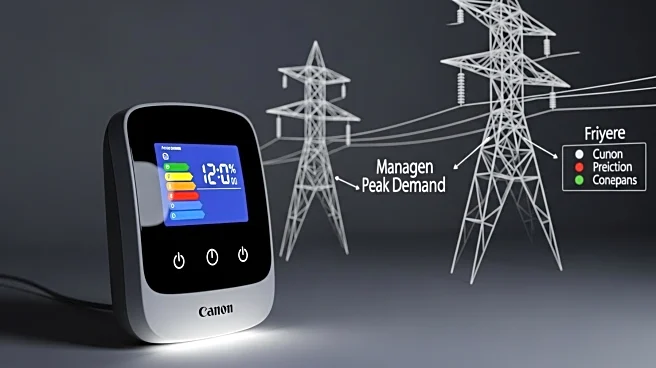What's Happening?
Ohio Representative Roy Klopfenstein has introduced House Bill 427, aiming to reintroduce an electricity peak demand program for small commercial and residential consumers. The bill proposes allowing utilities to lower thermostats and cycle appliance usage during peak demand periods, particularly on hot days. This initiative follows Governor Mike DeWine's recent signing of a comprehensive energy bill intended to stimulate new energy generation and overhaul the state's energy system. The proposed program seeks to address potential electric shortages due to increasing demand, with new energy generation still years away. Participants in the program would have the option to override any efforts to reduce their energy usage.
Why It's Important?
The introduction of House Bill 427 is significant as it addresses the growing concern of energy shortages in Ohio. By managing peak demand, the bill aims to prevent rolling blackouts and attract more businesses, including data centers, to the state. The program could potentially flatten consumer bills and offer financial incentives, making energy consumption more efficient and cost-effective. The bill's success could set a precedent for other states facing similar energy challenges, highlighting the importance of innovative solutions in energy management.
What's Next?
The bill is expected to receive bipartisan support, although it has not yet been scheduled for a committee hearing. The Ohio legislature is currently out of session until the end of the month, delaying further action on the bill. Stakeholders, including businesses and consumer advocacy groups, are likely to weigh in on the proposal, influencing its development and potential amendments. The outcome of this legislative effort could impact future energy policies and consumer practices in Ohio.
Beyond the Headlines
The proposed energy efficiency program raises questions about consumer autonomy and the balance between individual rights and collective energy management. The ability for participants to override energy reduction efforts reflects a compromise between efficiency and personal choice. Additionally, the bill's focus on peak demand management highlights the broader issue of sustainable energy practices and the need for long-term solutions to energy shortages.









